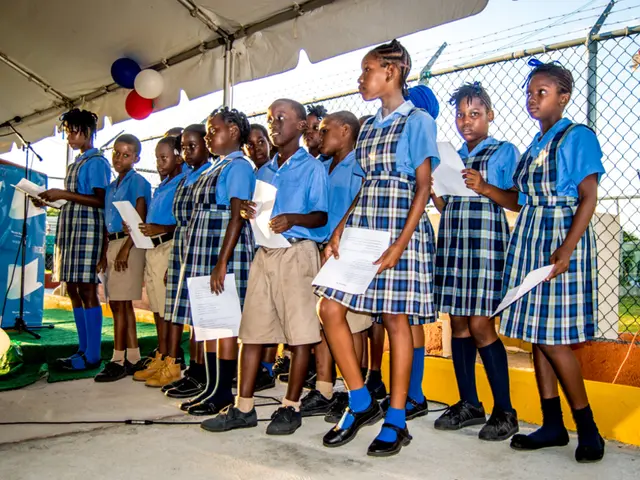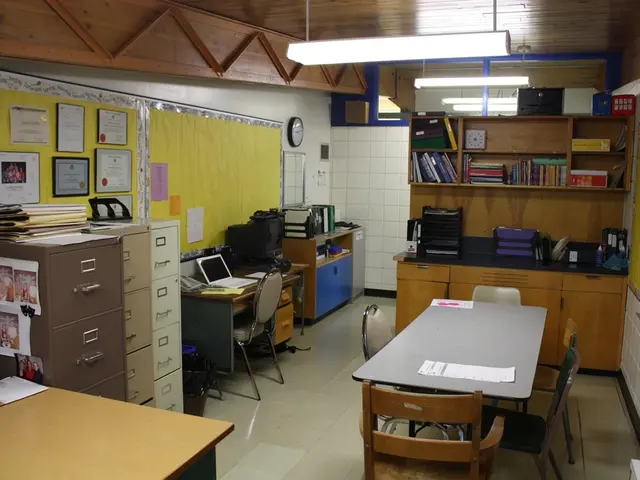Federal education funding, Bafög, reaches a new low not seen since the year 2000.
In a significant development, the German government has agreed to reform the BAföG student financial aid system as part of its coalition agreement. One of the key changes includes raising the parental income exemptions by over 5%, amounting to a total increase of 27% since 2021, making BAföG more accessible for students from families with higher incomes.
The new support instrument, the "Study Start Allowance", was introduced for the 2024/2025 winter semester. This one-time financial grant of 1,000 euros is for those under 25 who receive certain social benefits before starting their studies and are enrolling for the first time. According to the latest figures, 10,700 people received this allowance in 2024, with the federal government spending 10.7 million euros on it.
However, the German Student Union (Deutsche Studierendenwerk or similar student bodies) is advocating for more comprehensive reforms. They propose increasing the grant portion, simplifying access to funding, and improving living allowances to make higher education affordable for all students, regardless of their background. Specific reform proposals from the student union in the current coalition agreement context are not fully outlined publicly.
The BAföG basic requirement of 475 euros per month will increase in two steps starting in 2027. Additionally, the housing cost allowance in BAföG will be increased from 380 to 440 euros per month starting in the 2026/2027 winter semester.
Despite these changes, Elke Hannack, deputy chairwoman of the German Trade Union Confederation, has expressed concern over the support amounts not covering the actual need. She has called for further action regarding BAföG.
The latest figures show that in 2023, the average monthly BAföG support was 657 euros for students, while pupils received 539 euros. It's worth noting that the number of BAföG recipients in 2023 is 612,800, which is a decrease of 4% from the previous year. Most of these recipients were under 25 and did not live with their parents.
The federal government's spending on BAföG support in 2023 decreased by 9%, amounting to 3.1 billion euros. It's interesting to note that in 2023, women made up 59% of BAföG recipients, while men made up 41%.
The stagnating number of BAföG recipients, coupled with the concerns raised by Elke Hannack, underscores the need for continued discussions and potential further reforms to ensure that BAföG provides adequate support to students in their pursuit of higher education.
The German government's recent agreements in the coalition include not only reforming the BAföG system but also the introduction of a new financial grant called the "Study Start Allowance", aimed at students from lower-income backgrounds. To further empower students and foster future growth, it is essential to advocate for comprehensive education-and-self-development initiatives, such as increased grant portions, simplified access to funding, and improved business solutions that address the actual needs of students within the finance sector.




